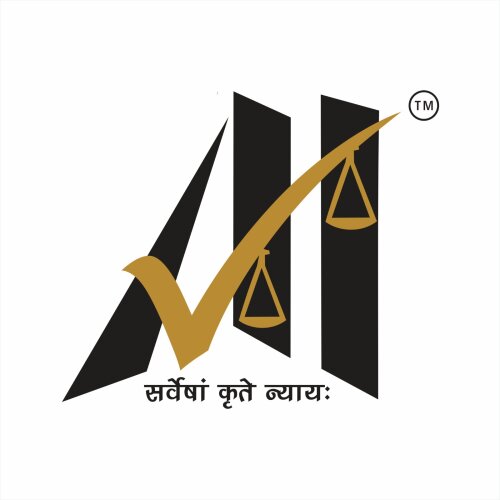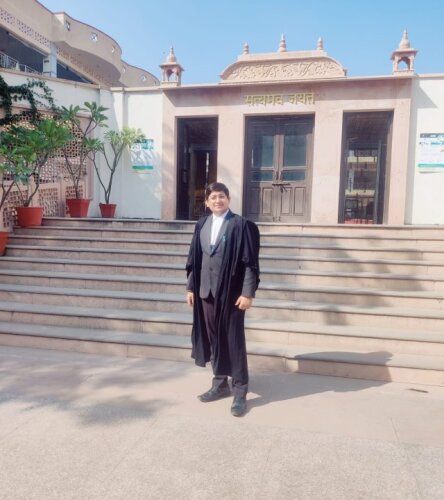Best Discrimination Lawyers in Jaipur
Share your needs with us, get contacted by law firms.
Free. Takes 2 min.
List of the best lawyers in Jaipur, India
About Discrimination Law in Jaipur, India
Discrimination laws in Jaipur, India, are designed to prevent unfair treatment of individuals based on certain protected characteristics like race, caste, gender, religion, age, disability, and more. These laws are crucial in promoting equality and ensuring that everyone has access to the same opportunities and resources. In Jaipur, discrimination can occur in various settings, including workplaces, educational institutions, housing, and public facilities. Understanding the legal landscape can help individuals protect their rights and seek justice if they face discrimination.
Why You May Need a Lawyer
Individuals may need legal assistance in discrimination cases for various reasons, including:
- Facing unjust treatment at work due to race, gender, or other protected attributes
- Experiencing biased admission policies in educational institutions
- Dealing with denial of housing or public services based on discriminatory reasons
- Needing to understand their legal rights and obligations when they believe they have been discriminated against
- Seeking compensation or other legal remedies for the harm caused by discriminatory actions
Having a lawyer can help navigate the complexities of discrimination laws, ensure that the correct legal procedures are followed, and present a strong case to support one's claims.
Local Laws Overview
In Jaipur, as in the rest of India, various laws govern the area of discrimination. Key among these are:
- The Constitution of India: Articles 14, 15, and 16 specifically prohibit discrimination based on religion, race, caste, sex, or place of birth.
- The Scheduled Castes and Scheduled Tribes (Prevention of Atrocities) Act, 1989: This law aims to prevent atrocities and promote social inclusion for SCs and STs.
- The Equal Remuneration Act, 1976: Ensures equal pay for equal work without discrimination on the grounds of gender.
- The Rights of Persons with Disabilities Act, 2016: Prohibits discrimination based on disability and ensures accessible and inclusive environments.
- The Sexual Harassment of Women at Workplace (Prevention, Prohibition and Redressal) Act, 2013: Protects women from sexual harassment at their workplace.
Understanding these provisions can help in identifying when discriminatory practices occur and what legal remedies are available.
Frequently Asked Questions
What is considered discrimination under Indian law?
Discrimination refers to unfair or unequal treatment of individuals based on certain protected characteristics such as race, caste, religion, gender, age, disability, etc.
How do I know if I have experienced discrimination?
You may have experienced discrimination if you were treated less favorably than others in a similar situation because of a protected characteristic.
What should I do if I face discrimination at my workplace?
If you face discrimination at work, report it to your HR department or an internal complaints committee. You can also seek legal advice for further actions.
Can I take legal action against an educational institution for discrimination?
Yes, you can take legal action if you believe you were discriminated against in admission policies or any other practices by the educational institution.
Is there a time limit for filing a discrimination complaint?
Yes, there are time limits for filing discrimination complaints, which can vary depending on the specific law under which you are filing. It's crucial to act promptly.
What evidence is required to support a discrimination claim?
Evidence can include witness statements, documents, emails, or any other material that shows you were treated unfairly because of a protected characteristic.
Can I seek compensation for discrimination?
Yes, you can seek compensation for any harm or losses suffered due to discriminatory practices. This may include financial losses, emotional distress, and other damages.
Are there anti-discrimination helplines in Jaipur?
Yes, you can contact local legal aid services, the State Human Rights Commission, and other governmental bodies for assistance with discrimination issues.
Can discrimination laws protect me from harassment?
Yes, certain discrimination laws, such as the Sexual Harassment of Women at Workplace Act, also protect against harassment based on protected characteristics.
What organizations can help with discrimination issues in Jaipur?
Several non-governmental organizations (NGOs) and legal aid services in Jaipur work towards combating discrimination and can provide support and advice.
Additional Resources
For further assistance and information on discrimination, you may contact the following:
- State Human Rights Commission
- National Commission for Scheduled Castes
- National Commission for Scheduled Tribes
- National Commission for Women
- Local legal aid clinics and NGOs such as PUCL (People’s Union for Civil Liberties)
Next Steps
If you believe you have been discriminated against and need legal assistance:
- Gather and document all evidence related to the discriminatory acts.
- Consult with a lawyer specializing in discrimination law to understand your rights and options.
- Consider filing a formal complaint with the appropriate authority, such as your workplace’s internal complaints committee, the State Human Rights Commission, or relevant legal bodies.
- Seek support from local NGOs and legal aid services that specialize in discrimination issues.
- Stay informed about your rights and follow the legal advice provided to ensure your case is handled effectively.
By taking these steps, you can work towards addressing the discrimination you have faced and seek the justice you deserve.
Lawzana helps you find the best lawyers and law firms in Jaipur through a curated and pre-screened list of qualified legal professionals. Our platform offers rankings and detailed profiles of attorneys and law firms, allowing you to compare based on practice areas, including Discrimination, experience, and client feedback.
Each profile includes a description of the firm's areas of practice, client reviews, team members and partners, year of establishment, spoken languages, office locations, contact information, social media presence, and any published articles or resources. Most firms on our platform speak English and are experienced in both local and international legal matters.
Get a quote from top-rated law firms in Jaipur, India — quickly, securely, and without unnecessary hassle.
Disclaimer:
The information provided on this page is for general informational purposes only and does not constitute legal advice. While we strive to ensure the accuracy and relevance of the content, legal information may change over time, and interpretations of the law can vary. You should always consult with a qualified legal professional for advice specific to your situation.
We disclaim all liability for actions taken or not taken based on the content of this page. If you believe any information is incorrect or outdated, please contact us, and we will review and update it where appropriate.














